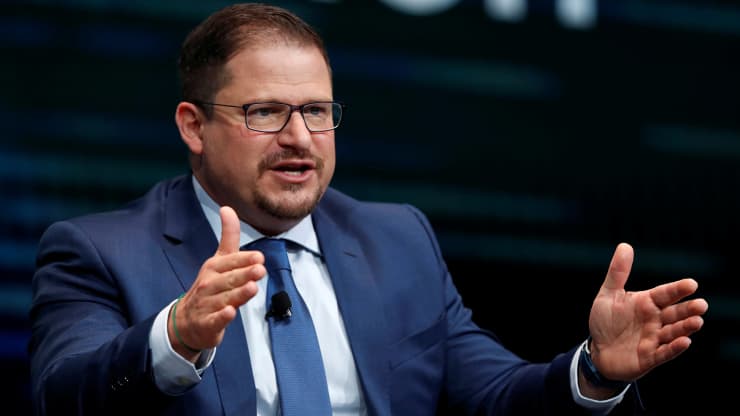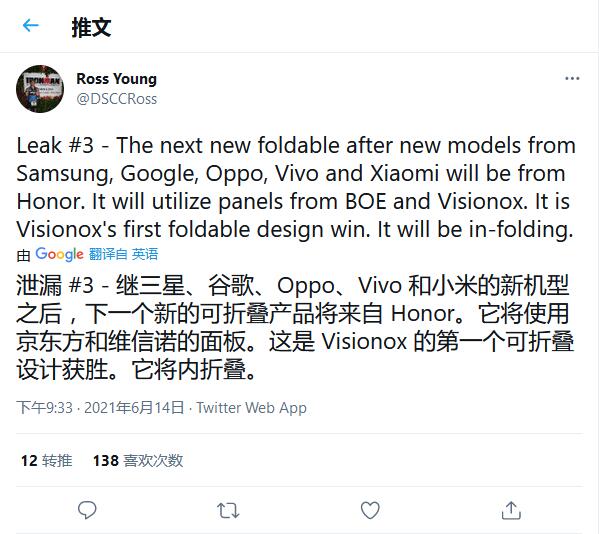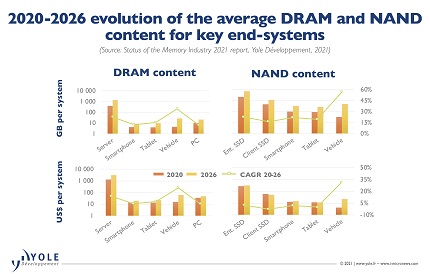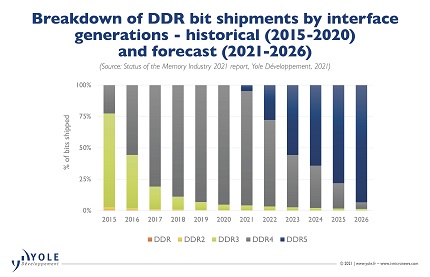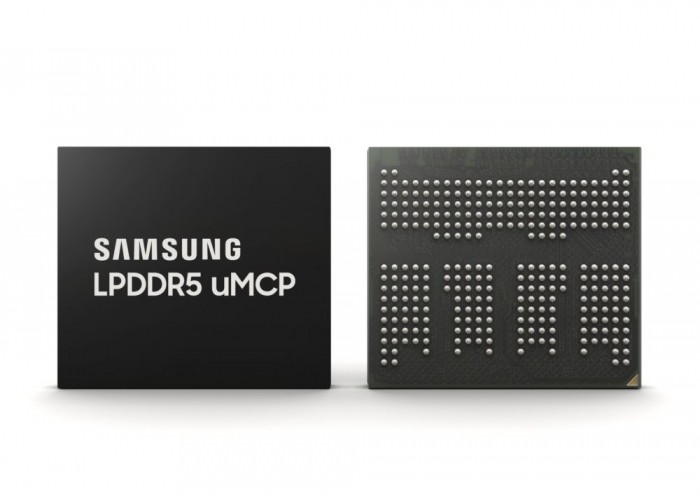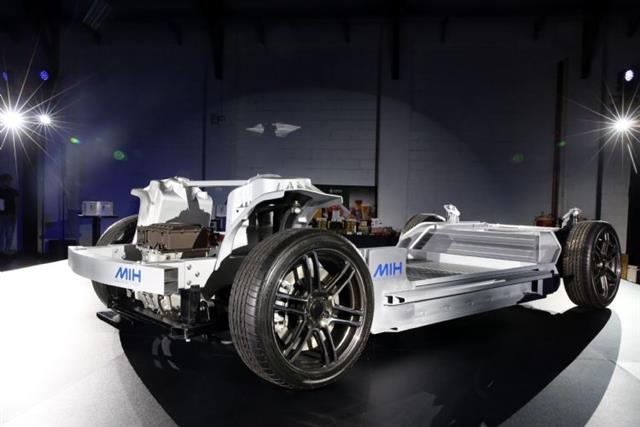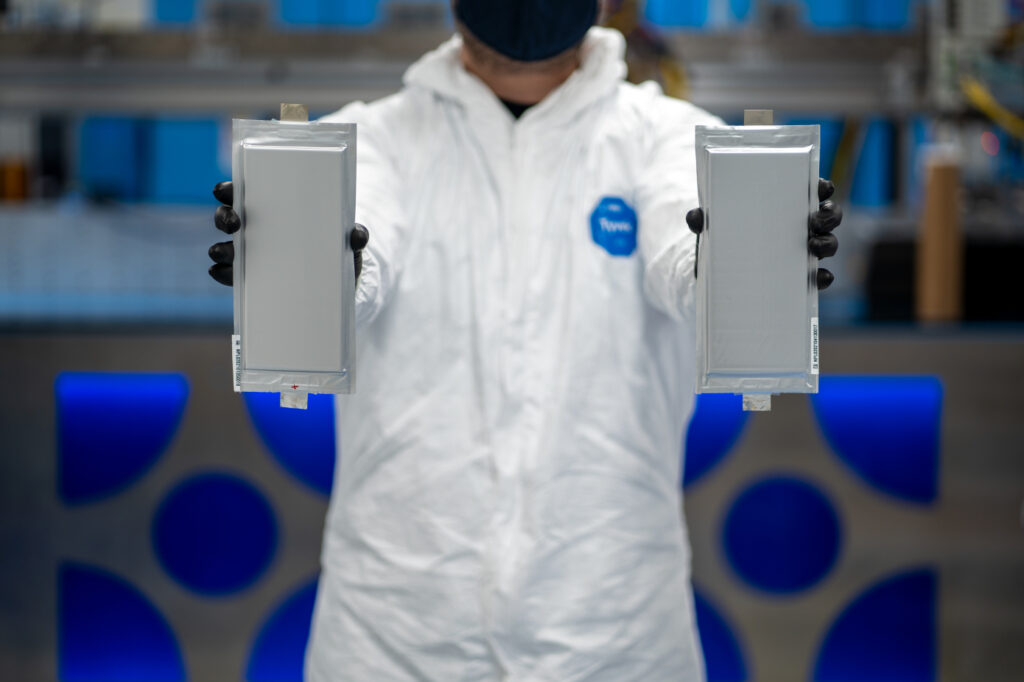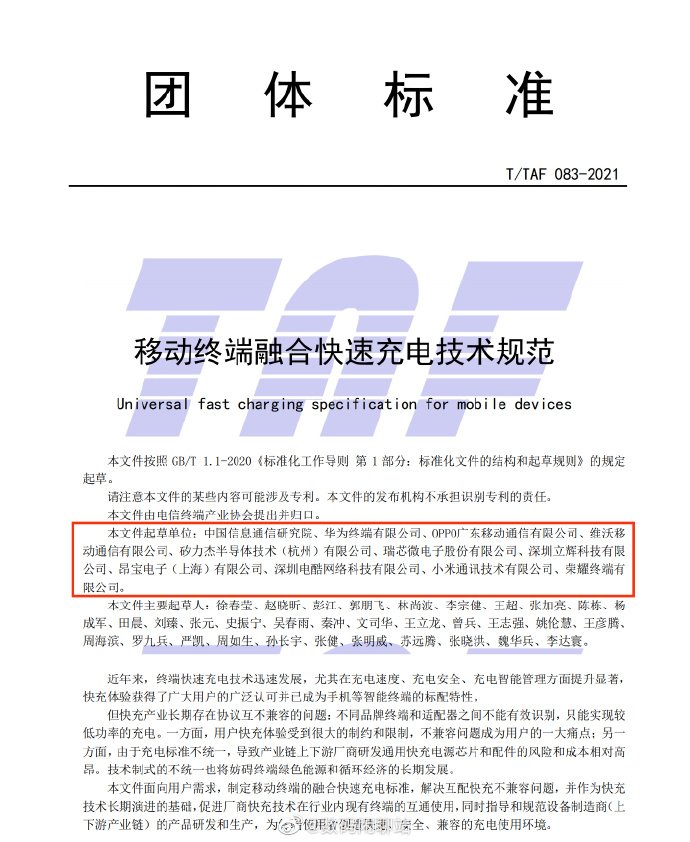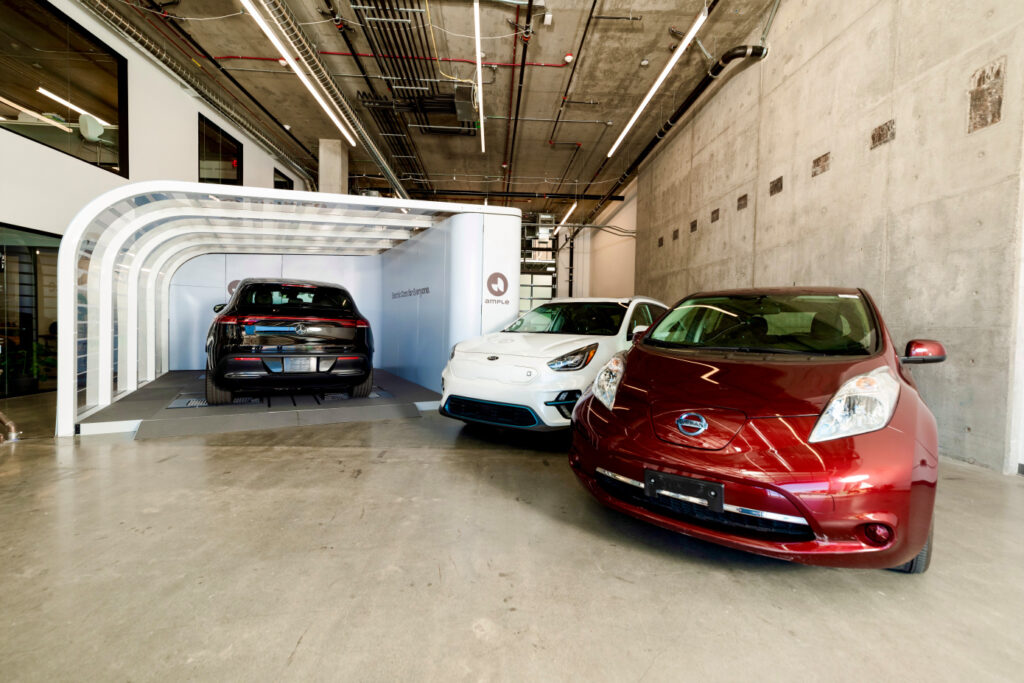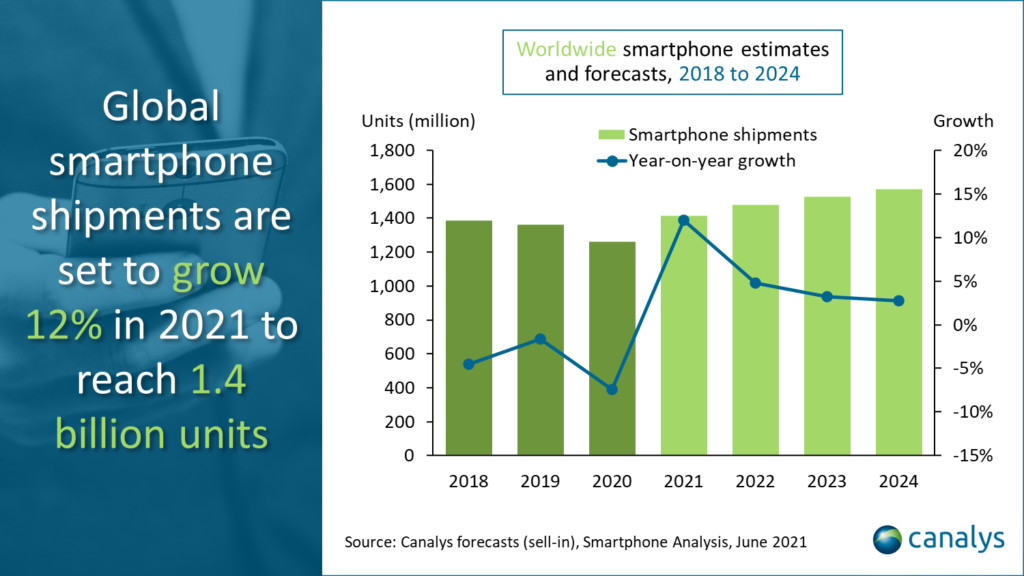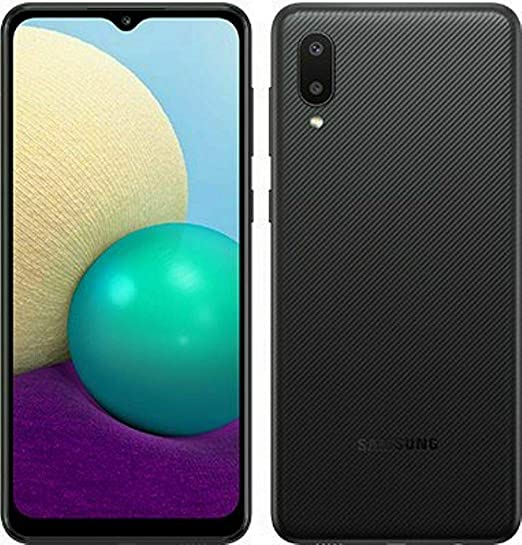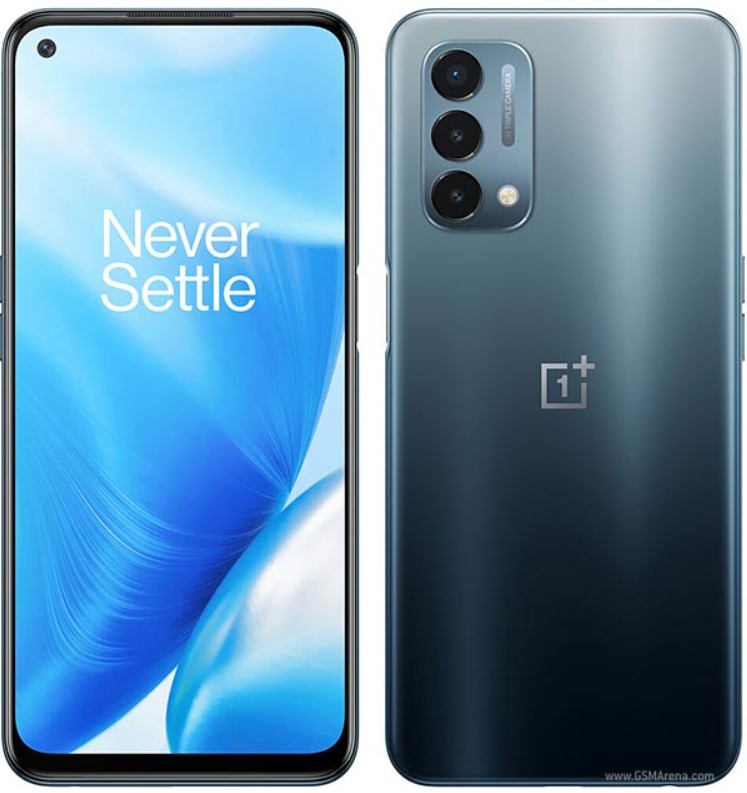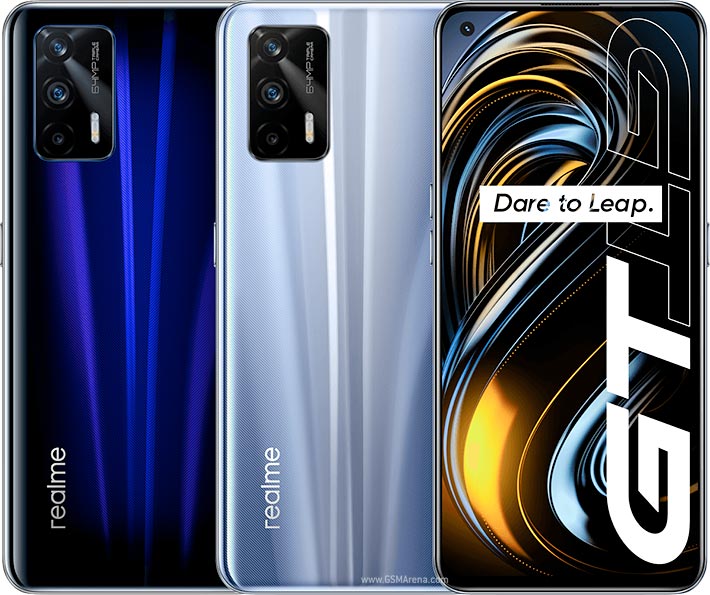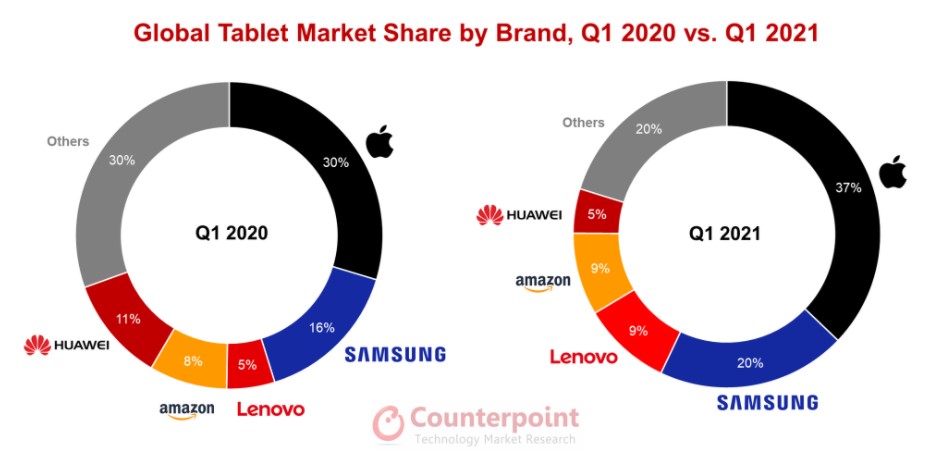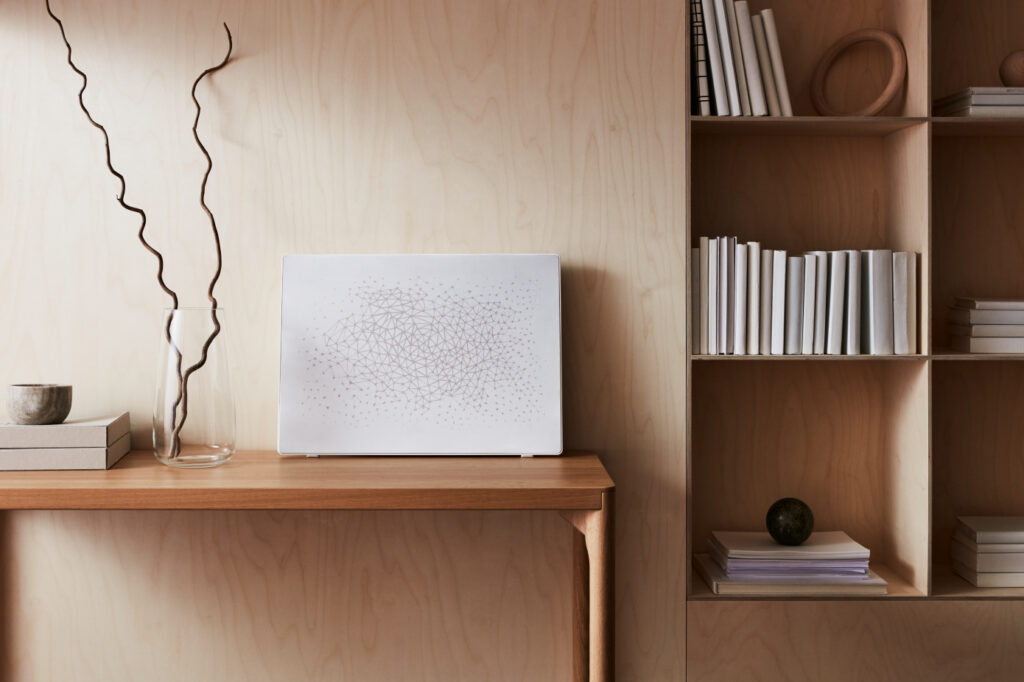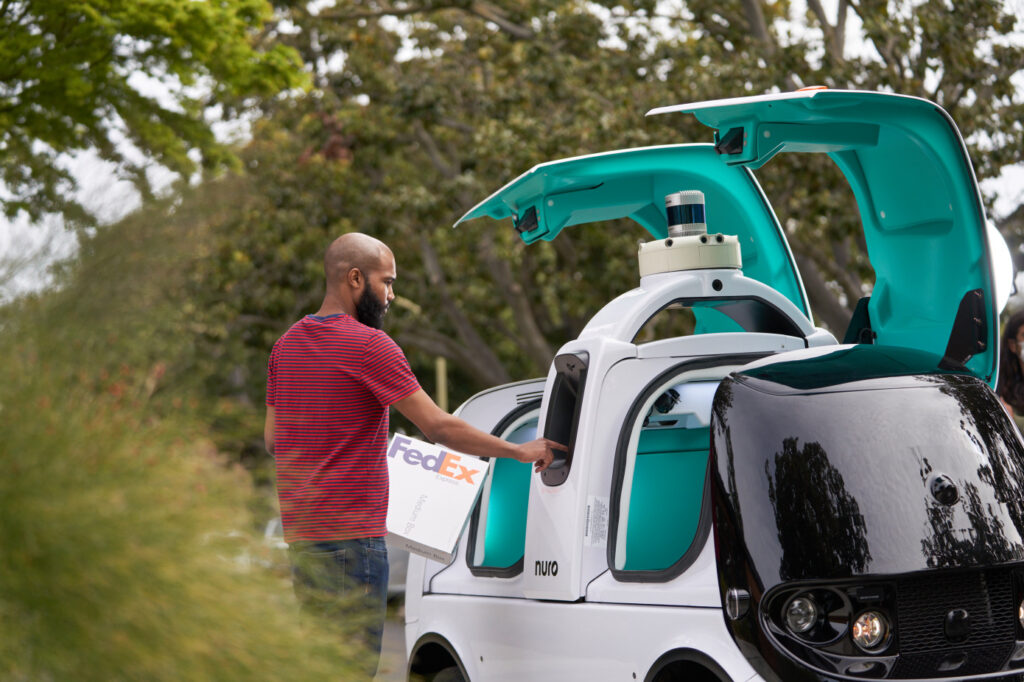
6-17 #Summer : OnePlus has announced to “further integrate” its organization with OPPO; Honor smartphones and tablets will be able to run Google Mobile Services (GMS); GM has again upped the amount it says it will spend on electric and autonomous vehicle investments; etc.
The global chip supply shortage has been fairly well documented, and most projections have claimed that it will not be until at least 2022 that some sort of normalcy around the world may be restored. The shortage now threatens to put to risk some of the biggest companies in various industries, which is no longer restricted to just the technology companies. Among other downsides, according to Diganta Das, a counterfeit electronics researcher with the Centre for Advanced Life Cycle Engineering (CALCE), the crisis in chipset supply may cause brands to place orders with vendors who may not have otherwise passed the quality check, and as a result, may create a big security problem arising out of fake chipsets. (GizChina, MySmartPrice, ZDNet)
Qualcomm has stated that it is ready to invest in ARM if the USD40B NVIDIA deal fails. Qualcomm’s incoming CEO, Cristiano Amon, has said Qualcomm would be willing to buy a stake in ARM alongside other industry investors if SoftBank, ARM’s current owner, listed the company on the stock market instead of selling it to NVIDIA. (Gizmo China, Telegraph, CNBC)
Intel has outlined its vision for new a processor family dubbed the Infrastructure Processing Unit (IPU). In brief, this is a new processor type which is “designed to enable cloud and communication service providers to reduce overhead and free up performance for central processing units (CPUs)”. IPUs build upon Intel’s SmartNIC tech, and the initial FPGA-based IPU platforms already being tested by partners will be succeeded by dedicated ASICs in due course. (CN Beta, Intel, The Register, Hexus)
Display Supply Chain Consultants (DSCC) has indicated that Honor is reportedly launching its first foldable phone in 2021 after Samsung, Google, OPPO and vivo launching their own foldable phones. Honor is said to be sourcing panels from BOE and Visionox. Google is reportedly working with Samsung Display to develop its own foldable phone. (CN Beta, XDA-Developers, Display Supply Chain, Android Central)
The labor union of major display maker Samsung Display has said its union leadership plans to go on strike from 21 Jun 2021, as the union and the management failed to narrow differences in wage talks, marking the first-ever walkout for the company and any Samsung Group affiliate. (CN Beta, Pulse News, YNA)
According to Yole Development, combined DRAM and NAND revenue in 2020 was USD122B, up 15% from 2019. DRAM and NAND revenues are expected to grow with 15% and 8% CAGR 2020-2026, respectively. DDR5 adoption will kick off in servers and the business world in 2022, when this new type of faster RAM will increase its share of the memory market to 25%. Following that in 2023, DDR5 would overtake current DDR4 memory as it is adopted by more consumer hardware including PCs and smartphones, securing a predicted market share of around 55%. (Yole Development, Windows Central, TechRadar, CN Beta, Tom’s Hardware)
IDC forecasts for the worldwide hard disk drive (HDD) and solid state drive (SSD) markets. While both markets were affected the COVID-19 pandemic, the outlook looks good as demand for storage remains strong in multiple areas. Worldwide HDD industry petabyte shipments are expected to see a compound annual growth rate (CAGR) of 18.5% over the 2020–2025 forecast period and average capacity per drive is forecast to increase at a five-year CAGR of 25.5%. IDC expects worldwide SSD unit shipments will increase at a 2020–2025 CAGR of 7.8% and worldwide SSD revenue will grow at a CAGR of 9.2% over the same period, reaching USD51.5B in revenue by 2025. (IDC, CN Beta)
Samsung Electronics has announced that it has begun mass producing its latest smartphone memory solution, the LPDDR5 UFS-based multichip package (uMCP). Samsung’s uMCP integrates the fastest LPDDR5 DRAM with the latest UFS 3.1 NAND flash, delivering flagship-level performance to a much broader range of smartphone users. (CN Beta, Samsung, GSM Arena)
Taiwan’s Foxconn has said a subsidiary has invested NTD995.2M (USD36M) in Gigasolar Materials to develop electric vehicle (EV) battery materials. Foxconn has said the investment via a private placement through a Taiwan-based subsidiary will make it the second-largest shareholder in Gigasolar, known for manufacturing solar cell materials. (CN Beta, Reuters, CAN, Digitimes)
Nanyang Technological University has recently developed a new type of fast charging technology. This technology can fully charge lithium batteries within 10 minutes. The new method is called “nonlinear voltammetry”, here the current changes in pulses throughout the process. This method is the same as going up a step. The voltage of each charging stage is kept constant until it reaches the next voltage after certain parameters are met, and it is finally full. This method allows the battery to take a short break during the charging process. Furthermore, the chemical reaction is slightly different from constant current charging. (GizChina, IT Home, The Register)
Solid Power, a solid-state battery developer backed by Ford and BMW, is going public. The company has said it would head to the NASDAQ via a merger with special purpose acquisition company Decarbonization Plus Acquisition Corp III at a post-deal implied market valuation of USD1.2B. (TechCrunch, PR Newswire, Motley Fool)
The “Technical Specifications for Converged Fast Charging of Mobile Devices” issued by the Telecommunications Terminal Industry Association is led by the Institute of Information and Communications Technology, Huawei, OPPO, vivo, and Xiaomi, and has already won Honor, Silicon Power, Rockchip, Lihui Technology, On-Bright Electronics , Dianku Network and many other devices, chip companies and industry partners strongly support. During the standard development process, Huawei, OPPO, vivo, Xiaomi and other leading manufacturers would take the lead in formulating a unified technical standard for fast charging of mobile devices for the purpose of fast charging compatibility. (CN Beta, Gizmo China, Sina)
EV battery swapping startup Ample has locked in 2 partnerships that will help fuel an expansion into Japan and New York City after years of working on the technology. It has partnered with Japanese petroleum and energy company Eneos to jointly deploy and operate battery swapping infrastructure in Japan. The Eneos announcement comes a few days after Ample launched a separate partnership with Sally, a New York City-based EV rental company for ride-hailing, taxi and last-mile deliveries. (CN Beta, TechCrunch, Bloomberg)
Carmakers Ford Motor and Nissan Motor, conglomerates LG Electronics and Samsung Electronics, and start-ups Britishvolt and InoBat Auto are in discussions with the U.K. government regarding locations and financial support for building gigafactories for the production of batteries for electric cars. The U.K. government’s plan to ban the sale of new petrol and diesel cars by 2030 and hybrids by 2035 will require the U.K.’s vehicle plants to shift to producing electric models. (CN Beta, Yahoo, Financial Times)
Samsung may be looking to use more plastic and less glass in the construction of its Galaxy S22 series of devices. Samsung will allegedly use a “brand new processing technology” to create the back cover of the Galaxy S22 and S22 Plus. Both devices will be made of plastic instead of glass. Only the S22 Ultra would have a glass back cover. (Android Authority, IT Home, Naver)
According to Canalys’ latest forecasts, the worldwide smartphone market will grow 12% in 2021, with shipments reaching 1.4B units. This represents a strong recovery from 2020, when shipments fell 7% due to major market constraints caused by the COVID-19 pandemic. As vaccine roll-out continues around the world and the pandemic is subdued, component supply will emerge as the new bottleneck for the smartphone industry. (CN Beta, Canalys)
US lawmakers have unveiled a wide-ranging antitrust agenda, aiming to rein in the competitive power of giants like Amazon, Apple, Facebook and Google with 5 bipartisan bills that would represent the most meaningful refashioning of antitrust laws in decades. The bills, which are the culmination of more than a year-long investigation of digital competition, target what lawmakers call the “unregulated power” wielded by those companies. The immense market power of these companies, which together represent more than USD6T in market value, has confounded the basic principles that guided antitrust legislation in the US for generations. (Apple Insider, CN Beta, CNBC, CNET)
Google is rolling out end-to-end encryption in Messages for all Android users after months of testing. Encrypted messages are limited to one-on-one conversations between people with Chat features and data enabled. It will not work for plain SMS (which does not support encryption) or group chats. (Android Authority, Android, 9to5Google, Google, Sina)
OnePlus CEO Pete Lau has announced to “further integrate” its organization with OPPO to create better products and bring faster updates to its users. The announcement comes 6 months after OnePlus merged its R&D resources with OPPO. (Android Central, Engadget, OnePlus, Android Headlines, CN Beta)
Honor has confirmed that global Honor smartphones and tablets will be able to run Google Mobile Services (GMS) going forward. Honor is undergoing Google’s Play Protect security review and compatibility testing to ensure GMS apps are ready to run on Honor devices. (CN Beta, GSM Arena)
Samsung has reportedly begun mass production of Galaxy A02 in the company’s Noida facility in India. The Samsung Galaxy A02 launch date in India has not been revealed at the moment. (GizChina, 91Mobiles, MySmartPrice)
OnePlus Nord N200 5G is announced – 6.49” 1080×2400 FHD+ HiD LTPS 90Hz, Qualcomm Snapdragon 480 5G, rear tri 13MP-2MP macro-2MP depth + front 16MP, 4+64GB, Android 11.0, side fingerprint, 5000mAh 18W, USD240. (CN Beta, GSM Arena, Engadget)
realme GT 5G is launched in Europe – 6.43” 1080×2400 FHD+ HiD Super AMOLED 120Hz, Qualcomm Snapdragon 888 5G, rear tri 64MP-8MP ultrawide-2MP macro + front 16MP, 8+128 / 12+256GB, Android 11.0, fingerprint on display, 4500mAh 65W, EUR369 / EUR499. (GizChina, NDTV, Money Control)
Honor 50 series is announced in China: 50 – 6.57” 1080×2340 FHD+ HiD OLED 120Hz, Qualcomm Snapdragon 778G 5G, rear quad 108MP-8MP ultrawide-2MP macro-2MP depth + front 32MP, 8+128 / 8+256GB, Android 11.0, fingerprint on display, 4300mAh 66W, starts at CNY2,699 (USD422). 50 Pro – 6.72” 1236×2676 HiD curved OLED 120Hz, Qualcomm Snapdragon 778G 5G, rear quad 108MP-8MP ultrawide-2MP macro-2MP depth + front dual 32MP-12MP ultrawide, 8+256 / 12+256GB, Android 11.0, fingerprint on display, 4000mAh 100W, starts at CNY3,699 (USD578). 50 SE – 6.78” 1080×2388 FHD+ HiD 120Hz, MediaTek Dimensity 900 5G, rear tri 108MP-8MP ultrawide-2MP macro + front 16MP, 8+128 / 8+256GB, Android 11.0, side fingerprint, 4000mAh 66W, starts at CNY2,399 (USD375). (GSM Arena, CN Beta, Android Authority, IT Home)
The global tablet market saw a big revival during the pandemic, emerging from a long slump. The market grew by 19% YoY in 2020 due to the increasing demand for large-screen mobile devices spurred by remote work, online education and extended stay-at-home orders. Continuing the growth trajectory, the market grew 53% YoY in 1Q21 after reaching a 5-year high in 4Q20, according to Counterpoint Research. However, in QoQ terms, it came down by 22% due to the quarter being an off-season period. (GSM Arena, 9to5Mac, WCCFTech, Counterpoint Research)
Honor Earbuds 2 SE is announced featuring active noise cancellation (ANC), priced at CNY469 (USD73). It features Dual Microphone AI Call Noise Reduction that uses beamforming technology to reduce background noise such as wind noise when making calls. The battery life of the earbuds is said to provide up to 10 hours of playback time with ANC off, and it goes up to 32 hours with the case. (Gizmo China, CN Beta)
Sonos and Ikea have unveiled the newest addition to their 3-year-old Symfonisk line of home speakers. The Picture Frame is a medium-size, flat-panel speaker that can either be mounted on a wall or set on a shelf via kickstand. The Picture Frame is priced at USD199. It features built-in Wi-Fi, connects with the rest of Sonos’ hardware and works with 100 different streaming services. (TechCrunch, CN Beta)
Faraday Future (“FF”) has announced its global manufacturing strategy, demonstrating its capabilities for its class-defining ultimate-intelligent tech-luxury electric FF 91. The company’s primary manufacturing of the FF 91 will take place at its 1.1M square-foot refurbished facility in Hanford, California. FF has retained the services of Ware Malcomb, a leading full service international design firm, to finalize FF’s architectural planning, interior design, and civil engineering for its Hanford manufacturing facility. (CN Beta, Sina, Business Wire, Yahoo)
General Motors (GM) has again upped the amount it says it will spend on electric and autonomous vehicle investments, saying that it would spend USD35B through 2025 — an USD8B increase from its previous plan announced in Nov 2020. The additional money will be used to expand its rollout of EVs and accelerate production of its battery and fuel cell technologies, including two new U.S. battery plants in addition to two under construction, by 2025. (TechCrunch, The Verge, CNBC, General Motors)
Waymo has announced a second external funding round, raising USD2.5B for the continued advancement of its autonomous driving technology. Waymo says the money will help further its mission to bring its autonomous ride-hailing service to more markets. (The Verge, CNBC, Autobala)
Bridgestone Americas has announced it has made a minority investment in Kodiak Robotics, a leading U.S.-based self-driving trucking company. The partnership will allow Bridgestone to integrate its smart-sensing tire technologies and fleet solutions into Kodiak’s level 4 autonomous trucks. (TechCrunch, Bridgestone, PR Newswire, Forbes)
FedEx and robotics company Nuro on Tuesday announced a multi-year agreement to test self-driving vehicles in the package delivery company’s network, starting with a pilot program in Houston. The company has said at the time it planned to work with AutoZone, Lowe’s, Pizza Hut, Target, Walgreens and Walmart to figure out how autonomous robots might fit into its delivery business. (CN Beta, Reuters, TechCrunch)
Apple has reportedly considered a plan to launch its own subscription-based healthcare service. The idea is conceived in 2016 but has reportedly stalled as Apple focused its healthcare efforts on the Watch, Apple Health and other products and services instead. (CN Beta, Engadget, WSJ)

